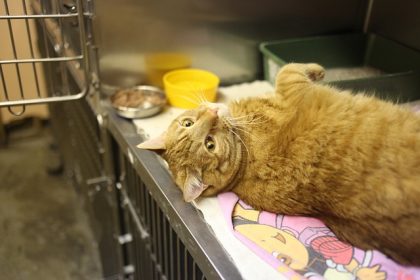Various college degrees come with requirements that students must attend and be successful in a college clinical or internship to graduate. A clinical is an unpaid internship where a student supposedly practices their major skills so they can move right into the working world upon graduation. Trouble arises when a student is terminated from their clinical with no or little notice, which can happen if a college does not have good policies, or more often, fails to follow them. Why does this happen and what does a student do?

What College Majors Require Clinicals?
I don’t have an exhaustive list on what college degrees require a clinical placement be completed for a university student to graduate. I know law schools usually don’t.
Generally, it seems that degrees in health care and/or which will involve immediate application, require clinical placements and grading for a student to obtain the degree. Some examples may be:
- Nursing degrees
- Physician/doctor degrees
- Social worker degrees
- X-ray technicians degrees
- Veterinarian degrees
- Phlebotomy degrees (phlebotomy is blood drawing)
- Others…
Clinical Grades are Largely Subjective
Clinicals can have issues due to the highly subjective nature of clinical grading. College students in an internship will have various competencies they have to meet, but whether these are met is usually determined by one person, the clinical instructor.
It is often difficult to determine how a clinical instructor perceives a student’s skills or progress until later in the semester. And, if a student draws the ire of a clinical instructor, the fear of being failed may be real. Regardless, students are subjectively evaluated, and often by someone they rarely see or interact with. It is problematic.

All or Nothing Clinical Grades?
Often student clinical grades are determined on 2 occasions: at the midterm, and at the final. As such, clinical grades are almost all or nothing. If a student is not passing many of their competency requirements at the midterm, they may not know if they have fixed any alleged issues until they fail.
Remedies If Student is Not Meeting Clinical Standards
In many college clinical placements, students who have not met the grading standard at e.g. the midterm, will be put on a “Needs Improvement Plan” or similar document. This document will outline the alleged student competency areas at issue. These may or may not be developed at a student meeting, and will inform the student they basically are in danger of failing if they don’t meet X, Y, or Z clinical expectations.
I have met students who say they never got a “Needs Improvement Plan,” or one was developed but they did not get a copy. Keep in mind, not all colleges implement a “Needs Improvement Plan” system, but it seems fairly common.
Vague Clinical Requirements
Unfortunately, as many clinical areas required for a passing grade are vague, such as “maintain professionalism,” even a “Needs Improvement Plan,” may not be enough to save a student, as it may be really unclear what needs to be done by the clinical student to pass. This is problematic.
For example, if a student has gotten on the negative radar of a clinical instructor, they may never be able to be graded as “maintaining professionalism” as the professor just thinks the student is bad all around, and is unprofessional as a result. Or a student is told they talk too loudly or too often, but fixing this “issue” is difficult with such vague issues.
Students have a tough time facing such vague grading standards.

Despite Pre-Termination Policies, Schools May Not Always Comply
College internship students may have in their major or clinical policies, certain things which must be done PRIOR TO a clinical student being terminated from the major program. However, I would be lax if I said that most colleges actually follow these policies.
I hear from many college students who are booted out suddenly and without the college following its own policies.
Well, did the college follow its own termination guidelines? Did they give the student verbal and written warning(s) or develop a “Needs Improvement Plan?” If not, depending on the university, program or clinical policies, there may be an attack point for the student.
Clinical Termination Can Be Sudden and Unexpected
Clinical students can be shocked at a a sudden clinical termination. Because colleges fail to provide prior notice, the student will think all is well, and they are on the way to graduation. Then, suddenly, they get a call saying not to come in the next day or asking them to meet with an administrator.
Often when a termination meeting happens, a college student thinks they are going to a regular meeting with clinical instruction staff and have no idea they will be facing termination prior to the meeting. Frequently, colleges don’t provide any notice the student is walking into a termination meeting or the basis for any proposed expulsion.
Upon arrival at this pre-planned termination meeting, the student may be surrounded by people they have never met and unfairly ripped apart. Often the student portrayed in these meetings is very different from the actual student, as dismissals can be based on hearsay, personal perceptions of staff, and not based on objective evidence of failure to meet requirements.

Clinical Termination Meeting Can Be One-Sided
It never matters to the dismissal “team” that the allegations against the college student may be false or unfounded, or based on hearsay and gossip. Perhaps allegations were made up by a clinical instructor whom the student offended or the clinical instructor just heard things happened from others. It won’t matter as often students can hardly get a word in edgewise at their surprise termination meeting.
Regardless, in about an hour, the students life turns around as they walk in a student and are thrown out out of school.
Sometimes at these meetings, alternative arrangements for the student to continue attending may be developed, but more often, they are not.
What Students Can Do AFTER Termination
A college student excluded from their clinical and maybe their major, should review the college policies and see if the school actually followed and implemented them. If not, the student may be able to file a grievance or appeal of the decision with the college and get it overturned.
Additionally, if a student thinks they were discriminated against, these allegations can be brought up.
Whether an attorney is needed or not, may depend on the situation, but in many cases I see colleges walk all over college students and treat them very unfairly. Whether the staff will listen to the student they just expelled when the student argues the college breached the student’s rights is certainly in question. Often they do not.
The student is not given a voice when summarily kicked out, so why would the college listen to the clinical student now?
Michelle Ball, college and university student attorney, helps college students with internships, placement, termination, expulsion, suspension, discipline, harassment, grading and other college issues. Lawyer Michelle Ball represents students throughout California from San Francisco, Los Angeles, Davis to Santa Barbara, Goleta, Chico and Orange CA.

